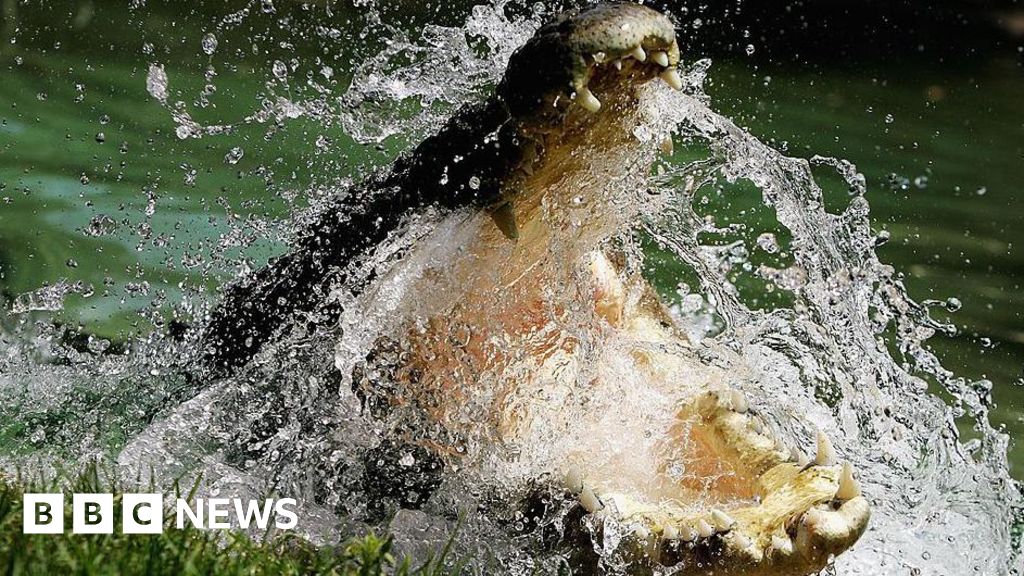Getty Images
Saltwater crocodiles are the largest living reptile in the world. It’s early morning on Darwin Harbour and government ranger Kelly Ewin, whose job is to catch and remove crocodiles, is carefully balancing on a floating trap. The sky is covered in heavy rain clouds from a recent storm, and the boat’s engine has been turned off, leaving only the occasional splashing sound coming from inside the trap.
“These guys give you pretty much zero chances,” says Ewin as he tries to loop a noose around the jaw of the agitated reptile. We are in Australia’s Northern Territory (NT), which is home to an estimated 100,000 wild saltwater crocodiles, more than anywhere else in the world. The capital city, Darwin, is a small coastal city surrounded by beaches and wetlands. And in the NT, where there is water, there are usually crocs.
Saltwater crocs, also known as salties, were nearly hunted to extinction 50 years ago due to the uncontrolled trade in their skins after World War Two. But hunting was banned in 1971, and their population began to rise rapidly. They are now a protected species, but their numbers need to be managed to ensure public safety.
The NT’s warm temperatures and abundant coastal areas provide the perfect habitat for these cold-blooded crocs. While most crocodile species are harmless, salties are territorial and aggressive. Fatal incidents are rare in Australia, but they do occur. This time of year is particularly busy for Ewin and his team as breeding season has just started, causing salties to be more active.
Education plays a crucial role in keeping the public safe around croc habitats. The NT government’s “Be Crocwise” program teaches people how to responsibly behave around crocs. This program has been so successful that other countries are looking to adopt similar initiatives.
Mass culling of crocodiles is not currently being considered due to their protected status. However, a new 10-year crocodile management plan has been approved to help control their numbers. Additionally, Ewin’s team works to remove crocs that pose a direct threat to humans.
Despite the controversy surrounding crocodiles, they are a major attraction for tourists in the NT. Crocodile farming has also become an economic driver, with luxury brands investing in the industry. Traditional Owners like Otto Bulmaniya Campion work with farmers to ensure Aboriginal communities benefit from the industry.
While opinions on crocodile conservation and farming vary, the presence of these formidable creatures in Darwin is undeniable.

